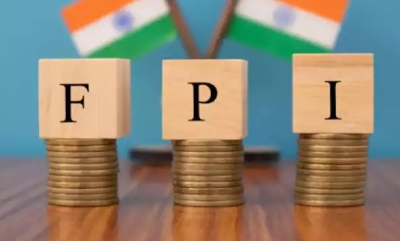Business
Family Pension Rules for missing Central government personnel

The Centre on Monday eased family pension regulations for missing central government employees, notably those serving in militancy-affected areas such as Jammu and Kashmir, the North-East, and Maoist-prone pockets, in a big relief.
According to the new office memorandum, in all cases where a government servant covered by the National Pension System goes missing while on duty, the benefits of the family pension will be paid to the employee’s family immediately, and if the employee re-appears and resumes service, the amount paid as family pension during the time he was missing can be deducted from his salary.
Previously, if an employee went missing, his next of kin did not receive the family pension, and the family pension was not given until he was declared dead in accordance with the law or seven years had passed after he went missing.
On Monday, Union Minister Jitendra Singh made the announcement.
The minister stated that the new OM of the Department of Pensions in this regard will bring “great relief,” particularly in areas where cases of government employees going missing are reported more regularly.
According to the minister, the modifications in pension rules were made in response to incidences of abduction of central government personnel operating in violent areas, and the decision was made “to instil trust and protect them and their families’ interests.”
In line with the instructions published on June 25, 2013, if a government servant covered by the CCS (Pension) Rules, 1972 goes missing, the benefits of arrears of salary, family pension, retirement gratuity, and leave encashment are paid to the families of the missing employees.
Business
Rupee weakened by 5 paise to 85.69 against the US dollar


The rupee weakened by 5 paise to 85.69 against the US dollar in early trading on Wednesday, marking the first session of 2025. The decline was attributed to the strength of the US dollar in global markets and continued foreign fund outflows impacting the Indian currency.
Forex analysts noted that the dollar index (DXY) and US 10-year bond yields have been rising, driven by the Federal Reserve’s cautious policy stance and influences such as the “Trump factor.” Additionally, trading volumes in global markets remain low due to the ongoing holiday season in key economies like the UK and Europe.
At the interbank foreign exchange market, the rupee opened at 85.63 before slipping further to 85.69, down by 5 paise compared to its previous close. On Tuesday, the rupee had dropped by 12 paise to close at a record low of 85.64 against the US dollar. The currency also hit an all-time intraday low of 85.80 on December 27.
Anil Kumar Bhansali, Head of Treasury and Executive Director at Finrex Treasury Advisors LLP, stated that the Reserve Bank of India (RBI) had intervened to stabilize the rupee at 85.6450 on Tuesday. “With US markets closed on Wednesday, cash dollar demand will be absent. A lower opening in USDINR could provide importers with an opportunity to purchase dollars for their payables. The expected range for the day is 85.40 to 85.70,” Bhansali remarked.
Meanwhile, the dollar index, which measures the greenback’s performance against a basket of six major currencies, stood at 104.48.
In the commodity market, Brent crude oil futures were trading at $74.64 per barrel.
On the domestic equity front, the 30-share BSE Sensex was down by 127.91 points, or 0.16%, at 78,011.10 in morning trade, while the Nifty fell by 36.30 points, or 0.15%, to 23,608.50.
Business
Sensex plunges to 2-months low by 930.55 points

Benchmark Sensex plunged by 930.55 points while broader Nifty dropped below the 24,500 level to settle at more than two-month lows on Tuesday due to an intense sell-off across sectors and massive foreign fund exodus from the capital markets.
Extending losses to the second day, the BSE Sensex plummeted 930.55 points or 1.15 per cent to settle at 80,220.72, the lowest closing level since August 14. During the day, it tanked 1,001.74 points or 1.23 per cent to 80,149.53. The NSE Nifty tumbled 309 points or 1.25 per cent to 24,472.10 as 47 of its constituents closed lower and three advanced. The index hit a low of 24,445.80 during the day. A weak earnings growth trend and sluggish global markets hit investor sentiment, analysts said, adding that rising US bond yields and policy actions by China are triggering FII outflows.
From the 30 Sensex pack, Mahindra & Mahindra, State Bank of India, Power Grid, Tata Steel, IndusInd Bank, Tata Motors, Larsen & Toubro, NTPC, Bajaj Finance and Reliance were among the biggest laggards. In contrast, ICICI Bank, Nestle and Infosys were the gainers from the pack.
Business
FPIs sold equities worth Rs 25,000 cr in Jan

New Delhi, Feb 3 (IANS) An important feature of the FPI flows in January this year was the divergent trends in equity and debt flows. While equity saw net selling of Rs 25,734 crore, debt saw net buying of Rs 19,836 crore. These figures are inclusive of cash market and primary market and others, says V.K. Vijayakumar, Chief Investment Strategist, Geojit Financial Services.
There are three reasons for this trend. One, the US bond yields rose to around 4.16 per cent in January from around 3.88 per cent in December 2023. This prompted outflows from equity to high yielding US bonds, he said.
Two, Indian equity became the most expensive in the world (Nifty trading at PE of around 21 based on FY24 estimated earnings). This triggered equity selling in India.
Third, some FPIs are doing the front running in the Indian bond market anticipating flows into the Indian bond market after the inclusion of India in the JP Morgan Emerging Market Bond Fund, he added.
Going forward, FPI inflows into the equity market will depend on the trends in the US bond yields and the equity market trends globally as well as in India. Since the US bond yields have again corrected sharply, FPIs are unlikely to sell in large volume in February. They may even turn buyers. The inflows into the debt market are likely to continue, he added.
Business
USISPF welcomes Joe Ucuzoglu, Raj Shah, Alex Rogers & Prashant Ruia into Board of Directors

Washington, Feb 3 (IANS) The US-India Strategic Partnership Forum (USISPF) is thrilled to welcome to its Board of Directors Mr Joe Ucuzoglu, Deloitte Global CEO; Mr Raj Shah, Co-CEO, MSI Surfaces; Mr Alex Rogers, President, Global Affairs and Qualcomm Technology Licensing for Qualcomm Incorporated; and Mr Prashant Ruia, Director, Essar Capital.
Ucuzoglu, who succeeded Mr Punit Renjen as Deloitte Global CEO in January 2023, also replaces Mr Renjen on USISPF’s Board.
As the Global CEO of the largest professional services organisation in the world, Ucuzoglu remains actively engaged with many of Deloitte’s clients as well as a range of external stakeholders, working to ensure that Deloitte is consistently leveraging the full breadth of its services to deliver impactful results for clients and communities.
Prashant Ruia is a second-generation entrepreneur of the Ruia family that founded Essar. He has been an integral part of Essar’s operations and management since 1985, playing a key role in driving the growth, diversification, and value creation, both within India and internationally.
Under his leadership, Essar is transitioning its existing assets towards a greener economy and investing in sector-transforming sustainable businesses.
Rajesh (Raj) Shah, along with his brother Mr Rupesh Shah, is President and Co-CEO at MS International, a leading importer and distributor of countertops, flooring, wall tile, and landscaping products in North America. The company was launched in 1975 by Raj’s parents, Manu and Rika Shah, founders of MSI, and first-generation immigrants to the United States.
Alex Rogers has been in numerous leadership roles since joining Qualcomm in 2001. Currently, he is a member of the Company’s executive committee and is responsible for government and public affairs, export compliance, corporate responsibility and leads Qualcomm’s patent licensing business.
Speaking on the recent appointments to the USISPF Board, USISPF President and CEO Dr Mukesh Aghi said: “The additions of Joe, Alex, Prashant and Raj accentuate the growing synergy in US-India ties across fields of critical and emerging technology, especially in semiconductors to deepening trade relations and collaborating in new domains in hydrogen and biofuels to build a clean energy economy.
“The year 2023 was a monumental year, with the success of Prime Minister Narendra Modi’s state visit to the US and President Joe Biden’s visit to India for a successful G20 Summit.
“With our ever-expanding Board and new captains of industry and distinguished leaders from the private sector, USISPF is better positioned than ever to build on the commercial and geostrategic aspects of the partnership in 2024.”
Commenting on his addition to the USISPF Board, Ucuzoglu said: “I am thrilled to join the Board of USISPF, an organisation that is key to strengthening the partnership between the U.S. and India and providing an important platform for stakeholders to come together to create meaningful opportunities for business, government and society overall.”
Rogers spoke about the importance of US-India technology ties, saying, “The US and India are uniquely positioned to use connectivity, processing, and artificial intelligence to advance the public good and stimulate economic growth.
“Qualcomm technologies and employees have been an integral part of India’s digital revolution over the past 25 years. We are proud to be part of the solution as digitization transforms the lives of people everywhere, whether it is how they work, connect, socialise, or interact with the environment.”
USISPF Chairman John Chambers congratulated the new appointees and said: “After all the groundbreaking accomplishments 2023 brought for the US-India partnership, I’m excited for the new year with the addition of these well-accomplished leaders to the USISPF Board.
“Alex, Prashant, Raj, and Joe will add even more breadth to USISPF’s roster of private sector experts, underscoring the passion from Fortune 250 companies to increase relations and business pursuits between the U.S. and India. These exciting appointments – along with others we’ve announced this year – position us for even greater success in the years to come.”
Commenting on his appointment to the Board of Directors, Ruia thanked USISPF Chairman John Chambers and USISPF President and CEO Mukesh Aghi and said: “I am thrilled to step onto the prestigious platform of the US-India Strategic Partnership Forum (USISPF) as a member of its Board of Directors. This appointment resonates with the mutual commitment to advancing stronger economic ties between the United States and India.
“I look forward to leveraging my experience to enhance collaboration, drive innovation, and further strengthen the strategic partnership between these two great nations, especially in fostering sustainability and ESG. We find ourselves in a momentous period for the diplomatic ties between the United States and India, and I am pleased to contribute to this significant endeavor.”
Raj Shah spoke about what the US-India relationship personally means to his family’s success story, saying: “India is playing an integral role in manufacturing and providing services to consumers in the United States. We look forward to working with the USISPF Board to continue to strengthen ties between the US and India.”
Business
Jeff Bezos to sell 50 mn Amazon shares in next 12 months

San Francisco, Feb 3 (IANS) Amazon founder Jeff Bezos is planning to sell at least 50 million company shares in the next year, the media reported.
According to a filing with the US Securities and Exchange Commission (SEC), Amazon, where Bezos currently serves as executive chair, said its billionaire founder had a trading plan for selling a maximum of 50 million shares.
The sales will occur “over a period” ending January 25 of next year “subject to certain conditions,” the filing read, reports Fox Business.
Bezos, who recently turned 60, owns nearly one billion shares of Amazon stock. Seven other top Amazon insiders took up trading plans for offloading Amazon shares, according to the SEC filing.
However, Bezos’ involved the largest amount of shares. Bezos’ stake in Amazon stocks make up a major portion of his $193.3 billion personal fortune.
Net sales for Amazon increased 14 per cent to $170 billion in the holiday quarter that ended December 31, 2023, compared with $149.2 billion in the fourth quarter of 2022.
Net income increased to $10.6 billion in the fourth quarter of 2023, compared with $0.3 billion in the fourth quarter of 2022. Amazon Web Services (AWS) segment sales increased 13 per cent year-over-year to $24.2 billion.
Amazon CEO Andy Jassy said the past holiday season was “record-breaking.” “This Q4 was a record-breaking Holiday shopping season and closed out a robust 2023 for Amazon,” said Jassy. “As we enter 2024, our teams are delivering at a rapid clip, and we have a lot in front of us to be excited about,” he added.
-
Video2 years ago
PM Modi Attacks Congress in Karnataka with “Kerala Story”
-
Politics2 years ago
Siddaramaiah & DK Shivakumar sworn in as Chief Minister & Deputy CM respectively
-
Cricket2 years ago
CSK players rejoice 5th IPL title with their families (Pics)
-
Entertainment2 years ago
Karan Deol weds his longtime Girlfriend Drisha Acharya (Pics)
-
Sports7 years ago
History Of Official FIFA WORLD CUP Match balls
-
India2 years ago
Ashwini Vaishnaw: Railway Board recommends CBI probe in the Odisha railway disaster
-
Entertainment2 years ago
Urvashi Rautela dazzles on Cannes 2023 red carpet (Pics)
-
Entertainment2 years ago
Sunny Leone gets ready for Kennedy premiere in Cannes (Pics)


























